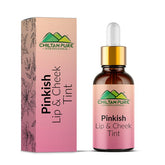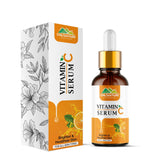Walnut Oil - Support Thyroid Health, Treat Psoriasis, Prevent Hair Fall & Reduce Risk of Cardiovascular Diseases
Walnuts are the richest nut globally, comprising more nutrients and antioxidants than any other nut.
Walnuts are believed to have originated in ancient Persia and then spread worldwide. They were a popular trade item and were frequently given to monarchs. The Romans believed that the nut might be used to treat poison and skin ailments. Walnuts have long been known as a good source of Omega-3 fatty acids, and they've been eaten as nuts from the beginning of time. We've learned about the benefits of walnut oil for our skin, hair, and health during the last few decades. Its consumption has changed dramatically during the last few decades. It offers a wide range of advantages, which have proven advantageous to humans.
 Walnut oil is excellent for fighting wrinkles. It has a greasy texture, but its regular application can help the fine lines and wrinkles disappear with time.
Walnut oil is excellent for fighting wrinkles. It has a greasy texture, but its regular application can help the fine lines and wrinkles disappear with time.
 We all dread facing the persistent skin problem called psoriasis. Walnut oil helps you cure it, and you may apply it topically or add it to your bath.
We all dread facing the persistent skin problem called psoriasis. Walnut oil helps you cure it, and you may apply it topically or add it to your bath.
 We all dream of those beautiful-looking tresses, free from all problems. But today's pollution-filled environment hardly fulfills our vision. Here are the benefits of walnut oil for hair.
We all dream of those beautiful-looking tresses, free from all problems. But today's pollution-filled environment hardly fulfills our vision. Here are the benefits of walnut oil for hair.
 Walnut oil can be great for fighting dandruff as well. It helps keep the scalp clean by removing all the dirt from it. Apply it regularly to get maximum benefits. It prevents the scalp from getting flaky, hence preventing dandruff.
Walnut oil can be great for fighting dandruff as well. It helps keep the scalp clean by removing all the dirt from it. Apply it regularly to get maximum benefits. It prevents the scalp from getting flaky, hence preventing dandruff.
 Walnut oil's consumption has undergone a massive change across the world. It has some of the best health benefits. We have compiled a list of its health benefits.
Walnut oil's consumption has undergone a massive change across the world. It has some of the best health benefits. We have compiled a list of its health benefits.
 Consumption of walnut oil helps a great deal in boosting the blood vessel's functioning overall. Try different recipes that use walnut oil. You will find some delicious recipes using walnut oil.
Consumption of walnut oil helps a great deal in boosting the blood vessel's functioning overall. Try different recipes that use walnut oil. You will find some delicious recipes using walnut oil.
 Walnut oil helps you fight insomnia and ensures you a good night's sleep. It contains melatonin which promotes sleep and regulates it too, and it is suitable for people with irregular sleeping patterns.
Walnut oil helps you fight insomnia and ensures you a good night's sleep. It contains melatonin which promotes sleep and regulates it too, and it is suitable for people with irregular sleeping patterns.
 Walnut oil's fatty acids into compounds that make up your skin. Getting enough omega-3s and omega-6s in your diet like those in walnut oil may promote better skin health, heal wounds faster, and treat eczema, acne, and even some skin cancers.
You can also apply walnut oil topically. The oil's anti-inflammatory and antioxidant effects may help slow signs of aging and treat conditions like psoriasis.
Walnut oil's fatty acids into compounds that make up your skin. Getting enough omega-3s and omega-6s in your diet like those in walnut oil may promote better skin health, heal wounds faster, and treat eczema, acne, and even some skin cancers.
You can also apply walnut oil topically. The oil's anti-inflammatory and antioxidant effects may help slow signs of aging and treat conditions like psoriasis.
Chemical composition
Walnut oil is primarily triacylglycerol, monounsaturated fatty acids (mostly oleic acid), and polyunsaturated fatty acids (PUFA; linoleic and -linoleic acids), which are all abundant. The fatty acid composition of walnut oil has been extensively studied for cultivars from Argentina, the United States, New Zealand, Portugal, Turkey, Greece, and Germany. Walnut oil has a comparable fatty acid makeup to soybean oil, but it has a higher proportion of linolenic acid.Carbs
Walnut oil does not contain any carbohydrates and, therefore, zero sugar and fiber.Fats
Walnut oil is primarily made up of healthy polyunsaturated fats, with approximately 63% of the fat coming from polyunsaturated fats, 23% from monounsaturated fat, and less than 10% from saturated fat. Walnut oil is an excellent food source of plant-based ALA omega-3 fatty acids. Your body converts into EPA and DHA in limited amounts; 1 tablespoon of walnut oil provides 1.4g of ALA, nearly 100 percent of the recommended daily intake for adults ages 19 to 50. For reference, the Adequate Intake (AI) for ALA for adult men is 1.6g per day and for adult women is 1.1g per day. Walnut oil contains more omega-3 fatty acids per serving than canola oil, frequently cited as another excellent source.Protein
Walnut oil is pure fat extracted from walnuts, so it does not contain protein.Vitamins and Minerals
Walnut oil contains a small amount of Vitamin K, providing 3% of an adult's daily needs in a one tablespoon serving. There is also a tiny amount of Vitamin E and choline in walnut oil, but this amounts to less than 1% of daily needs per serving.Allergies
Unrefined cold-pressed or expeller-pressed walnut oil should be avoided for those with specific allergies to nuts or walnuts. Fully refined walnut oil is unlikely to trigger an allergic response due to the refining processing, which results in the nearly complete removal of all proteins that cause allergic reactions.Oil Extraction
The two primary goals in walnut oil production are applying an appropriate method to recover the kernels' oil and improve its oxidative stability. Because of the high unsaturation level of walnut oil, extreme care needs to be taken to prevent oxidative degradation reactions during the processing and storage of the oil. The increasing demand for walnut oil encourages finding appropriate methods to enhance its shelf life by keeping oil oxidation at the lowest possible level. It has been reported that walnut oil can be extracted using the solvent method, a screw press, and supercritical carbon dioxide.Nutrition Information
One tablespoon of walnut oil contains Calories: 120 Protein: 0 grams Fat: 14 grams Carbohydrates: 0 grams Fiber: 0 grams Sugar: 0 grams Walnut oil is a good source of: Vitamin K Vitamin E Choline Phosphorus Zinc Walnut oil is also high in selenium. This antioxidant supports healthy thyroid function and may reduce your risk of cognitive decline, heart disease, and cancer.Walnut Oil Benefits for Skin
Walnut oil is high in both vitamins and minerals, works wonders on the skin, and is highly recommended for people who want flawless and ageless skin. Here are the benefits of walnut oil for the skin:Fighting Wrinkles
 Walnut oil is excellent for fighting wrinkles. It has a greasy texture, but its regular application can help the fine lines and wrinkles disappear with time.
Walnut oil is excellent for fighting wrinkles. It has a greasy texture, but its regular application can help the fine lines and wrinkles disappear with time.
Remedy for Infection
We all experience those horrible fungal infections that leave us feeling helpless. Walnut oil is your answer to those infections, and it helps fight fungal infections well.Helps Treat Psoriasis
 We all dread facing the persistent skin problem called psoriasis. Walnut oil helps you cure it, and you may apply it topically or add it to your bath.
We all dread facing the persistent skin problem called psoriasis. Walnut oil helps you cure it, and you may apply it topically or add it to your bath.
Great Antioxidant
Walnut oil is an excellent antioxidant and helps fight age well. It is perfect for your skin.Walnut Oil Benefits for Hair
 We all dream of those beautiful-looking tresses, free from all problems. But today's pollution-filled environment hardly fulfills our vision. Here are the benefits of walnut oil for hair.
We all dream of those beautiful-looking tresses, free from all problems. But today's pollution-filled environment hardly fulfills our vision. Here are the benefits of walnut oil for hair.
Helps Fight Hair Loss
No one likes seeing innumerable hairs falling each time they comb. Hair loss can be stressful, and Walnut oil has often helped people fight hair loss with the help of Omega-3 fatty acids that prevent cell damage.Fights Dandruff
 Walnut oil can be great for fighting dandruff as well. It helps keep the scalp clean by removing all the dirt from it. Apply it regularly to get maximum benefits. It prevents the scalp from getting flaky, hence preventing dandruff.
Walnut oil can be great for fighting dandruff as well. It helps keep the scalp clean by removing all the dirt from it. Apply it regularly to get maximum benefits. It prevents the scalp from getting flaky, hence preventing dandruff.
Promotes Hair Growth
Walnut oil promotes hair growth as it is high in potassium. Potassium is essential because it helps the regeneration of cells and hence accelerates hair growth.Walnut Oil Benefits for Health
 Walnut oil's consumption has undergone a massive change across the world. It has some of the best health benefits. We have compiled a list of its health benefits.
Walnut oil's consumption has undergone a massive change across the world. It has some of the best health benefits. We have compiled a list of its health benefits.
Reduces Risk of Cardiovascular Diseases
Consuming walnut oil helps lower cholesterol levels in the body. This way, it helps reduce the risk of cardiovascular diseases. You must include walnut oil in your regular diet.Boosts Blood Vessel Functioning
 Consumption of walnut oil helps a great deal in boosting the blood vessel's functioning overall. Try different recipes that use walnut oil. You will find some delicious recipes using walnut oil.
Consumption of walnut oil helps a great deal in boosting the blood vessel's functioning overall. Try different recipes that use walnut oil. You will find some delicious recipes using walnut oil.
Cuts Belly Fat
Walnut oil helps cut belly fat, and it can be easily consumed by substituting other oil with walnut oil. Adding walnut oil to your salads can make you feel full, and it also helps the body fight its craving for fats.Relaxant
 Walnut oil helps you fight insomnia and ensures you a good night's sleep. It contains melatonin which promotes sleep and regulates it too, and it is suitable for people with irregular sleeping patterns.
Walnut oil helps you fight insomnia and ensures you a good night's sleep. It contains melatonin which promotes sleep and regulates it too, and it is suitable for people with irregular sleeping patterns.
Heart Health
Most of walnut oil's fat content contains the omega-3 fatty acid called alpha-linolenic acid. This "good fat" can reduce your risk of developing heart disease by 10% when part of your daily diet Walnuts also reduce levels of triglycerides, a type of fat associated with a higher risk of heart disease and heart attacks, and stroke. One study even found that walnut oil can help the body better deal with stress by keeping blood pressure levels steady and lowering strain on the heart.Lower Risk of Diabetes
Walnut oil is high in antioxidants that can lower blood sugar levels, reducing your risk of diabetes. Inflammation is our body's natural response to stress and infection, but it can cause insulin resistance, which blocks the body's ability to use sugars. This raises blood sugar levels, putting you at a higher risk of obesity and diabetes.Better Skin
 Walnut oil's fatty acids into compounds that make up your skin. Getting enough omega-3s and omega-6s in your diet like those in walnut oil may promote better skin health, heal wounds faster, and treat eczema, acne, and even some skin cancers.
You can also apply walnut oil topically. The oil's anti-inflammatory and antioxidant effects may help slow signs of aging and treat conditions like psoriasis.
Walnut oil's fatty acids into compounds that make up your skin. Getting enough omega-3s and omega-6s in your diet like those in walnut oil may promote better skin health, heal wounds faster, and treat eczema, acne, and even some skin cancers.
You can also apply walnut oil topically. The oil's anti-inflammatory and antioxidant effects may help slow signs of aging and treat conditions like psoriasis.
Cancer Prevention
Walnuts' nutrients can slow the growth of cancer cells, and the oil's antioxidants help fight cell damage that scientists believe leads to cancer. Research shows a 15% lower cancer risk in people who eat an ounce of walnuts daily.uses
Walnut oil is available at most grocery stores and can be used in place of most other cooking oils in recipes, sauces, and dressings. It's suitable for pan-frying, but try to avoid cooking it at too high. At its smoking point, around 320°F, it can lose some nutrients and taste bitter.Precaution of Walnut Oil
Walnut oil is rich in nutrients, including omega-3s, which many diets often lack. However, like other cooking oils, it should be used in moderation to avoid adding too many extra calories to your diet and creating potential health risks like:Conclusion
- Walnut oil benefits include supplying lots of PUFAs, which are heart-healthy fats. This oil can help promote cardiovascular health and defend against oxidative stress, inflammation, diabetes, and high cholesterol.
- Unrefined, cold-pressed oil made from 100 percent walnuts for the best quality. It will have a light brown color and a sweet, nutty taste.
- Because it has a low smoke point, use it with room temperature foods. Don't cook with it at high heat to retain its healthy fats.
Tags:




![Red Onion Oil 🧅 Reduces Hair Fall & Accelerates Hair Regrowth [پیاز کا تیل].. Trending.... 🔥 - ChiltanPure](http://chiltanpure.com/cdn/shop/products/red-onion-oil-reduces-hair-fall-amp-accelerates-hair-regrowth-piaz-ka-til-trending-394813_165x.jpg?v=1707464619)
![Red Onion Oil 🧅 Reduces Hair Fall & Accelerates Hair Regrowth [پیاز کا تیل].. Trending.... 🔥 - ChiltanPure](http://chiltanpure.com/cdn/shop/products/red-onion-oil-reduces-hair-fall-amp-accelerates-hair-regrowth-piaz-ka-til-trending-329640_165x.jpg?v=1708127491)














